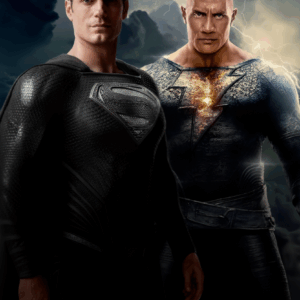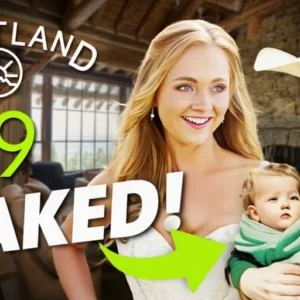Rachel Zegler, the 23-year-old actress whose career has been a rollercoaster of acclaim and controversy, is once again under fire as resurfaced comments on love and feminism spark outrage among directors and the online community. The remarks, originally made during the 2022 promotional tour for Disney’s live-action Snow White remake, have reignited debates about the modernization of classic fairytales, the role of feminism in Hollywood, and the intense scrutiny faced by young actresses. As Zegler prepares for her West End debut in Evita, the controversy threatens to overshadow her efforts to move past the Snow White flop and rebuild her career.
The Comments That Sparked a Firestorm
The controversy traces back to September 2022, when Zegler was promoting Snow White at Disney’s D23 Expo. In an interview with Extra TV, the then-21-year-old actress critiqued the 1937 animated classic’s love story, saying, “There’s a big focus on her love story with a guy who literally stalks her. Weird! Weird! So we didn’t do that this time.” She elaborated in a Variety interview, stating, “She’s not going to be saved by the prince, and she’s not going to be dreaming about true love. She’s dreaming about becoming the leader she knows she can be.” Zegler’s comments were intended to highlight the remake’s feminist reimagining, positioning Snow White as a proactive leader rather than a passive damsel waiting for romance. However, her description of the Prince as a “stalker” and her dismissal of the original plot as “weird” were perceived by many as disrespectful to a beloved classic.
At the time, the backlash was immediate. Fans of the 1937 film, Disney’s first animated feature, accused Zegler of undermining its legacy. Online, her remarks were labeled “woke,” with critics arguing that her feminist stance erased the romantic elements that defined Snow White’s story. “Criticizing Disney princesses isn’t feminist,” one commenter wrote on X in 2023. “Not every woman has to be a leader.” Even David Hand Jr., son of the original Snow White director, weighed in, saying, “There’s no respect for what Disney or my father did. Walt and my dad would be turning in their graves.” The controversy became a defining narrative for the remake, setting the stage for its troubled reception.

The Snow White Fallout
When Snow White hit theaters on March 21, 2025, the film was already burdened by years of controversy. Zegler’s casting as a Latina Snow White drew racist backlash from some who argued the character should have “skin as white as snow.” The decision to replace the seven dwarfs with CGI “magical creatures,” prompted by actor Peter Dinklage’s criticism of the original portrayal, was another point of contention, with fans calling the new characters “uncanny.” Tensions between Zegler and co-star Gal Gadot over their opposing views on the Israel-Palestine conflict—Zegler’s “Free Palestine” tweet clashed with Gadot’s pro-Israel stance—further fueled negative press, leading to boycotts and a ban in Lebanon.
The film’s box office performance was disastrous, grossing only $168 million against a $240–270 million budget, resulting in a $115 million loss for Disney. Critics were harsh, giving it a 40% score on Rotten Tomatoes, and fans review-bombed it on IMDb, driving its rating to 1.6 out of 10. A Mother’s Day re-release on May 11, 2025, intended to recoup losses, reportedly performed even worse, with posts on X describing empty theaters. Disney’s decision to shelve a planned live-action Tangled remake underscores the broader impact of Snow White’s failure on the studio’s remake strategy.
Zegler bore much of the blame, with her comments on the original film often cited as a reason for the backlash. Her political outspokenness, including a post-election Instagram story saying “f*** Donald Trump,” further polarized audiences, with some critics arguing that her actions alienated fans and hurt the film’s prospects. Producer Marc Platt reportedly flew to New York in 2024 to address her social media use, highlighting the tension between Zegler’s personal views and Disney’s promotional narrative.
Resurfaced Comments Spark New Outrage
The controversy reignited this week when a viral TikTok video compiled Zegler’s 2022 interviews, juxtaposing her remarks with clips from the 1937 film. The video, which has amassed over 15 million views, reignited criticism of her views on love and feminism, drawing fresh ire from both directors and the online community. Several prominent filmmakers, speaking anonymously to avoid professional repercussions, expressed frustration with Zegler’s approach. “When you’re working on a project with such a storied history, you have to tread carefully,” one director told Variety. “Calling a classic character a ‘stalker’ isn’t just tone-deaf—it’s a slap in the face to the legacy of those who came before. It set a negative tone for the entire production.”
Another director, known for helming family-friendly films, was more direct: “Rachel’s comments made it seem like love stories are inherently anti-feminist, which is a narrow view. Romance and empowerment aren’t mutually exclusive. Her perspective alienated audiences and made it harder for directors to navigate the remake’s narrative.” The sentiment echoes broader criticism that Zegler’s feminist stance oversimplified the original Snow White, reducing its romantic elements to outdated tropes without acknowledging their cultural context.
Online, the reaction has been even more intense. On X, users have labeled Zegler “arrogant” and “ungrateful,” with one viral post reading, “Rachel Zegler trashed a classic love story to push her ‘feminist’ agenda, and now she’s surprised the movie flopped? She needs to take accountability.” Others have accused her of misunderstanding feminism, arguing that empowering women doesn’t mean dismissing traditional narratives. “Not every princess needs to be a CEO,” one commenter wrote. “Love stories have value too.” The hashtag #RachelZeglerOut trended briefly on May 14, 2025, reflecting the ongoing vitriol she faces.
A Polarized Perspective
Zegler’s comments have also found defenders who argue that her views were taken out of context. Supporters point out that the 1937 Snow White does reflect outdated gender norms, with the princess often portrayed as passive and reliant on male saviors. “Rachel was trying to highlight how stories can evolve for modern audiences,” one fan wrote on X. “She wasn’t trashing the original—she was explaining why the remake needed to be different.” Others have criticized the disproportionate backlash, noting that Zegler’s remarks were part of a broader effort by Disney to modernize the story, a decision made by the studio, not her alone.
The controversy also highlights the racial undertones of the criticism Zegler has faced. As a Latina actress, she endured racist trolling over her casting, a pattern seen with other actresses of color in Disney remakes, like Halle Bailey in The Little Mermaid. Some argue that the backlash to her feminist comments is intertwined with this bias, with detractors using her statements as a pretext to attack her identity. “The hate Rachel gets isn’t just about what she said—it’s about who she is,” a supporter commented on Instagram.
The Broader Implications
The renewed backlash underscores the challenges of modernizing classic fairytales in an era of heightened cultural sensitivity. Disney’s push for “woke” remakes—emphasizing diversity and modern gender dynamics—has been a double-edged sword, appealing to younger audiences but alienating traditional fans. Snow White’s failure has led to a reevaluation of this strategy, with Disney reportedly shelving future remakes like Tangled. “Disney is stuck between nostalgia and innovation,” said film analyst Maria Torres. “They want to appeal to new generations, but they can’t afford to lose the core audience that grew up with these stories. Snow White fell into that gap.”
The controversy also highlights the disproportionate scrutiny faced by young actresses in Hollywood. Zegler, at just 23, has been held to an impossible standard, expected to navigate complex cultural debates while carrying the weight of a $270 million project. Her experience mirrors that of other young women of color in the industry, who often face harsher criticism than their peers. “Hollywood loves to build up young women and then tear them down,” said Torres. “Rachel’s comments were clumsy, but the level of vitriol she’s faced is disproportionate. It’s a pattern we’ve seen time and again.”
Zegler’s Response and Next Steps
In the Times interview, Zegler addressed the renewed criticism, expressing regret for the way her comments were perceived. “I never meant to disrespect the original Snow White,” she said. “I was trying to explain how we were updating the story for today’s audience, but I didn’t anticipate how it would be taken. I’ve learned to be more thoughtful about how I express my views.” She also pushed back against the narrative that her feminist stance was the sole reason for the film’s failure. “I was one part of a huge production,” she said. “The creative decisions, the marketing, the CGI dwarfs—those weren’t my choices. I did my best with the role I was given.”
Zegler is now focusing on her West End debut in Evita, where she’ll play Eva Perón starting June 14, 2025. The role, which she’s described as a “dream come true,” offers a chance to return to her theatrical roots and showcase her vocal talents, which were a highlight of Snow White despite its flaws. She’s also been lauded for her recent role in the horror-comedy Y2K, which has gained traction on Max, proving she still has a dedicated fanbase.
As Zegler moves forward, the Snow White controversy remains a cautionary tale for both her and Disney. For the studio, it’s a reminder to balance innovation with nostalgia and better support young stars amidst inevitable backlash. For Zegler, it’s a lesson in navigating fame, speaking her truth, and weathering the storm of public scrutiny. Her journey in Hollywood is far from over, and her next act may yet prove that she can rise above the challenges and reclaim her place in the spotlight.





